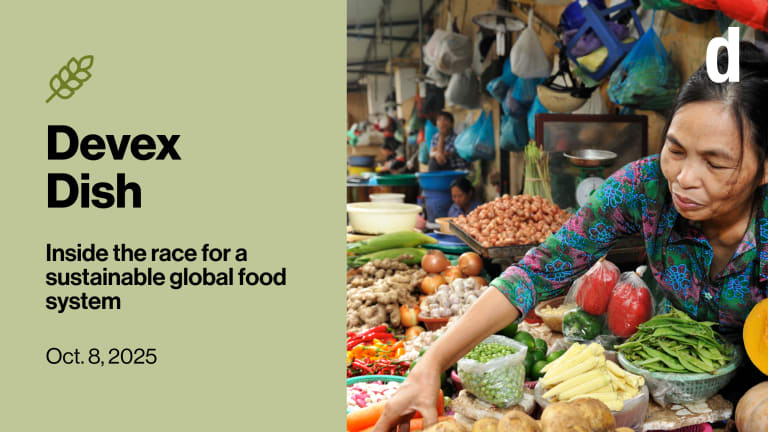Could centering agribusiness be the key to tackling food insecurity?
By Ayenat Mersie // 17 October 2025
Agriculture has taken center stage at this year’s World Bank and International Monetary Fund annual meetings — not as a side note on food security, but as a cornerstone of the bank’s new growth strategy.
Following its pledge to double agribusiness investments to $9 billion a year by 2030, the institution launched AgriConnect, a platform designed to channel more financing to smallholder farmers and build stronger rural markets.
The pivot was long overdue, Anup Jagwani, the International Finance Corporation’s global head of agribusiness, said during a Devex Impact House event on the sidelines of the annual gathering.
Printing articles to share with others is a breach of our terms and conditions and copyright policy. Please use the sharing options on the left side of the article. Devex Pro members may share up to 10 articles per month using the Pro share tool ( ).
Search for articles
Most Read
- 1
- 2
- 3
- 4
- 5








